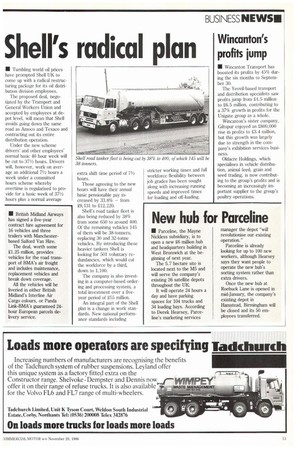Shell's radical plan
Page 15

If you've noticed an error in this article please click here to report it so we can fix it.
• Tumbling world oil prices have prompted Shell UK to come up with a radical restructuring package for its oil distribution division employees.
The proposed deal, negotiated by the Transport and General Workers Union and accepted by employees at depot level, will mean that Shell avoids going down the same road as Amoco and Texaco and contracting out its entire distribution operation.
Under the new scheme drivers' and other employees' normal basic 40 hour week will be cut to 371/2 hours. Drivers will, however, work on average an additional 71/2 hours a week under a committed hours scheme whereby overtime is regularised to provide for a basic week of 371/2 hours plus a normal average extra shift time period of 71/2 hours.
Those agreeing to the new hours will have their annual basic pensionable pay increased by 33.8% — from £9,131 to £12,220.
Shell's road tanker fleet is also being reduced by 38% from some 650 to around 400. Of the remaining vehicles 145 of them will be 38-tonners, replacing 30 and 32-tonne vehicles. By introducing these heavier tankers Shell is looking for 501 voluntary redundancies, which would cut the workforce by a third, down to 1,100.
The company is also investing in a computer-based ordering and processing system, a total investment over a fiveyear period of 255 million.
An integral part of the Shell plan is a change in work standards. New national performance standards including stricter working times and full workforce flexibility between job grades has been sought along with increasing running speeds and improved times for loading and off-loading.
























































































































